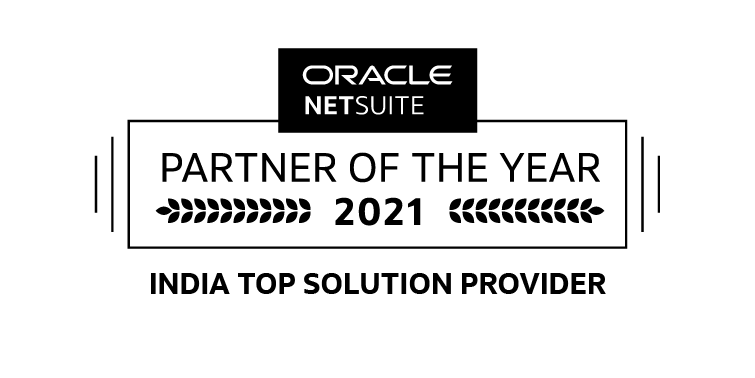Table of Contents
If you are looking for a cloud-based / on-premises ERP software solution for the digital transformation of your business, you can comprehend the comparison between Business Central vs. Microsoft Dynamics 365 Finance and Operations. These two business applications help drive extensive flexibility, increase productivity, and enhance operational efficiency.
Microsoft now offers two ERP applications under Microsoft Dynamics; Business Central and the offering of Dynamics 365 for Finance and Operations.
| Particulars | Dynamics 365 Business Central | Dynamics 365 For Finance and Operations |
| Company Size | Small to Mid-sized Businesses | Mid-sized to Enterprise Level Businesses |
| Industry | Distribution, Manufacturing, and Professional Services | Distribution, Manufacturing, Professional Services, Public Sector, and Retail |
| Scope of Integration | Deep integration with service management and manufacturing | Deep integrations with CRM, HR, Talent, Customer Service, and Marketing |
| Scalability | Supports businesses processing thousands of transactions | |
| Business Analytics | BI tools including reporting, dashboards, and ad-hoc analysis | Embedded PowerBI-rich analytical and reporting functionality |
| Deployment | Cloud or On-premise | Cloud, On-premise, or Hybrid |
| Modules | All-in-one solution
Manufacturing and Service modules can be added to Base product. (D365 Business Central Essential) |
Finance, Commerce, Supply Chain Management, and Human Resources
Additional capabilities are available across HR, sales, projects, and customer service through the wider Dynamics 365 range with the full Dynamics 365 plan. |
| Total Cost of Ownership | Low | Depends on the modules deployed and add-ons. |
| CRM | In-built | Not Available; Dynamics 365 for Sales is additional offering. |
| Implementation Cost | Lesser than Microsoft Dynamics 365 Finance and Operations | Considerably High |
Microsoft Dynamics 365 Finance and Operations
With the deployment of Microsoft Dynamics 365 Finance and Operations, you can elevate your financial performance with quicker reporting, optimize production planning, scheduling, and operations, and enhance cost management. By leveraging the core capabilities of Dynamics 365 for Finance and Operations, mid-sized and enterprise-level business organizations to drive extensive automation across the supply chain, order fulfillment, and logistics. Business administrators can make the most of an adaptable and custom-made platform to increase operational efficiency.
It supports 30+ langauges (including English, Spanish, Japanese, Chinese, etc.). You can leverage multiple localization per instance with inventively engineered software solutions. Manufacturing businesses can leverage this business management solution for tracking products by batch numbers, serial numbers, and accurate pallet tracking. It is supported and functional in 140 Countries and custom-made for the international development of medium to large organizations and groups of enterprises. For the most part, Dynamics 365 F&O uses 95% of the core business logic.
Additionally, it comes with
- Advanced financial capabilities
- Full-fledged HR management (optional module)
- Advanced project management (optional module)
- Comprehensive retail management (optional module)
Recently, Dynamics 365 Finance and Operations has been reconstructed as two separate solutions
- Dynamics 365 Finance
- Dynamics 365 Supply Chain Management
Dynamics 365 Business Central
With the deployment of Business Central, small and mid-sized businesses can create business solutions without silos and drive efficient and automated tasks. Additionally, Business Central comes with actionable insights with a complete view of your business’s connected data and analytics. You can oversee all those solutions that you may adapt to when your business grows or changes.
Microsoft Dynamics 365 Business Central is an all-in-one solution. It renders offers integration with the wider modules, however, it is mostly preferred for its stand-alone solution capabilities. Business Central is considered perfect for SMEs with a low cost per ownership.
Key Features
- Integrates data across accounting, customer interactions, purchases, sales, and stock.
- Delivers real-time insights to drive robust financial management and make informed decisions.
- Steers improvement across customer service, brand connection, and sales by prioritizing leads based on revenue potential.
- Ensure timely project delivery and within budget constraints.
- Renders built-in intelligence to improve forecast accuracy.
While Dynamics 365 for Finance and Operations comes with a lot more built-in ‘enterprise functionality’, Microsoft Dynamics 365 Business Central renders a wide range of business capabilities.
However, you can choose between the two strong ERP offerings from Microsoft as per your business requirements, goals, and future vision. In case, you are finding it tedious to choose between the two business applications or still have doubts about the best-suited solution for your organization, inoday, an official Microsoft Partner is here to help you make a judicious choice and lead a competitive edge.
For more details on Business Central vs Microsoft Dynamics 365 Finance and Operations, write to us at info@inoday.com Or Schedule A Demo








